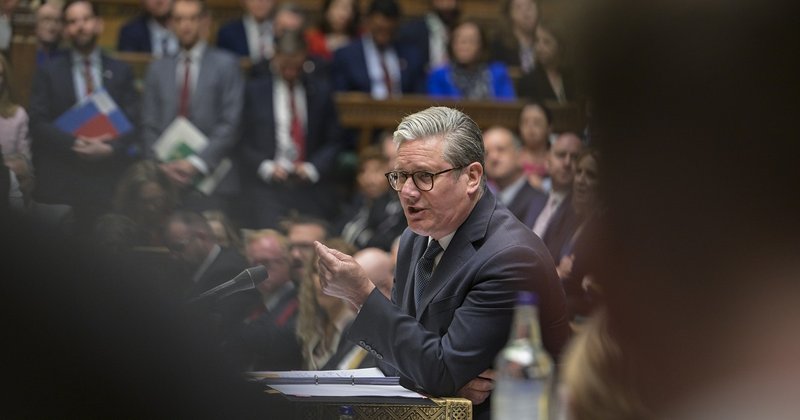Our verdict on Labour’s first year: nowhere near enough action to restore trust

In July 2024, Sir Keir Starmer made a pledge outside Number 10, that the public’s “lack of trust” in politics “can only be healed by actions not words.”
In saying these words, it seemed reasonable to expect trust-healing actions to follow. Unfortunately, this has not been the case.
Full Fact has followed the government’s delivery closely. Immediately after his speech we wrote to the Prime Minister publicly asking him to prioritise taking three key actions that would lay the groundwork for improved behaviour by politicians. We also created a Government Tracker—to monitor the implementation of Labour’s manifesto promises, so that the public had reliable information about what they voted for—and we sought corrections from ministers when they made inaccurate claims.
In our view, the government hasn’t yet delivered anywhere near enough action to restore trust. Here’s why.
Join 72,953 people who trust us to check the facts
Sign up to get weekly updates on politics, immigration, health and more.
Subscribe to weekly email newsletters from Full Fact for updates on politics, immigration, health and more. Our fact checks are free to read but not to produce, so you will also get occasional emails about fundraising and other ways you can help. You can unsubscribe at any time. For more information about how we use your data see our Privacy Policy.
Dwindling talk on Ethics
A flagship promise of Labour’s manifesto was the creation of an Ethics and Integrity Commission. The Commission was designed to “restore confidence in government and ensure ministers are held to the highest standards.” A year on, we still await news about this Commission.
Since July 2024, 17 questions have been asked by MPs on the status of the Commission, alongside a debate in the House of Lords, but rather than engaging with any questions about the status of the Commission the Government has resorted to stock responses about their previous successes.
The void of inaction is so vast that a Select Committee has even opened an inquiry about it. For a government that promised to “show, not tell”, it is safe to say that neither has yet happened.
Ministerial Code unnecessarily weak
Secondly, we asked the Prime Minister to put his new Ministerial Code on a statutory footing and incorporate compulsory adherence to the Code of Practice for Statistics. Otherwise, ministers could continue to make inaccurate claims, with the Prime Minister free to simply reject the Independent Adviser on Ministerial Standards’ findings.
Just over four months after entering office, the Prime Minister published his first Ministerial Code. We did see a step in this direction, with greater freedom being given to the Independent Adviser to carry out investigations into misconduct, as promised in Labour’s manifesto. However, the Prime Minister retained the power to reject the adviser’s conclusions if he wishes.

The Ministerial Code also failed to incorporate compulsory adherence to the Code of Practice for Statistics and was not made statutory. As we feared, ministers continued to make inaccurate statistical claims, as well as claims that weren’t backed up by publicly-available figures.
The Ministerial Code has continued to be inadequate at ensuring that ministers are “correcting any inadvertent error at the earliest opportunity”. On nine separate occasions since the General Election, ministers have failed to correct claims made in Parliament after receiving a request from Full Fact (Sarah Jones was the only exception).
Pat McFadden—the cabinet minister responsible for propriety and ethics—was the first to not correct an inaccurate statement. The Prime Minister has failed to respond to more of our correction requests than any other minister, after making claims about convictions, immigration, and interest rates.
Bigger steps needed to tackle misinformation
Lastly, we asked Sir Keir to prioritise the fight against misinformation and equip the public with the tools to detect bad information online. Soon after we sent our letter, the riots that followed the Southport stabbings provided a stark illustration of how rapidly harmful misinformation can spread when left unchecked.

One year on, the lessons from the aftermath of the Southport attack have not resulted in action. As our annual report stated, the Online Safety Act is still “not fit for purpose” and there has been little movement from the government to prioritise strengthening the Act, rather than implementing it as they inherited it.
Our profound concern on all three fronts has driven us to write publicly to the Prime Minister again. We want to work with him to restore public trust, but another year of words won’t do. The time for action is now.